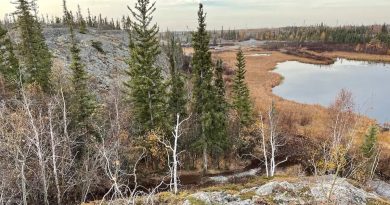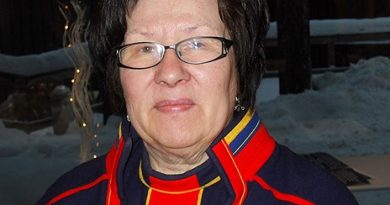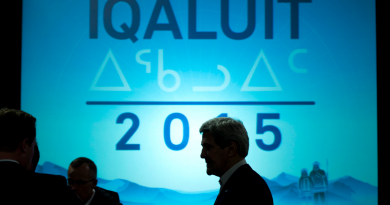Nunavut schools may open in September with no physical distancing if COVID-19 free
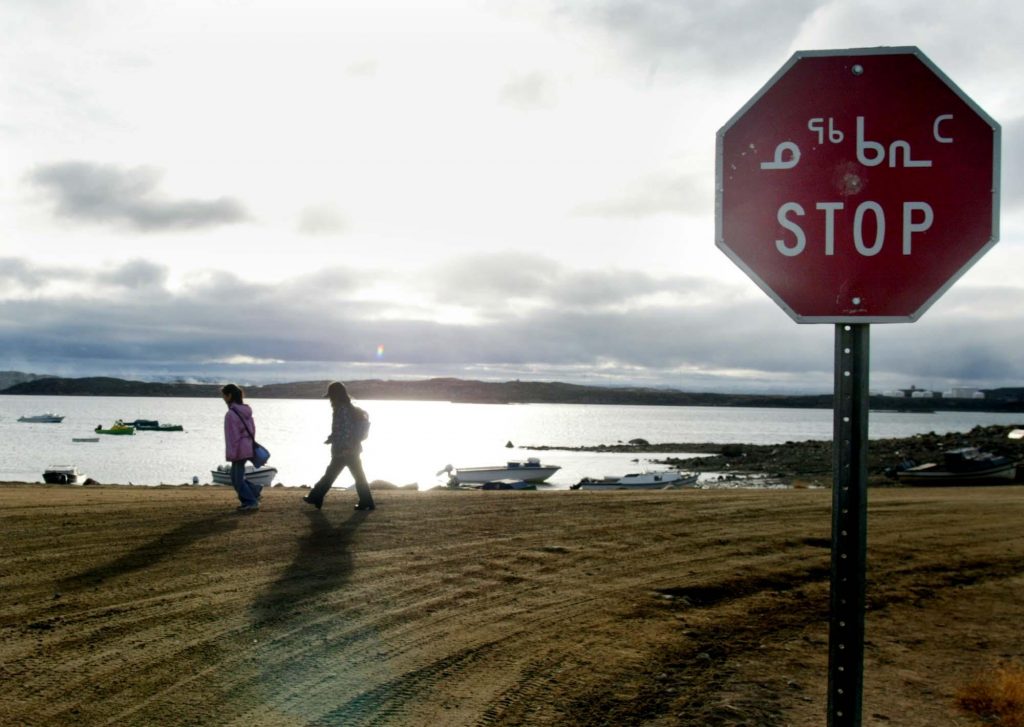
The Nunavut government is planning on opening schools with no physical distancing measures this fall, as long as the territory continues to be COVID-19 free.
In draft documents obtained by CBC News, the Nunavut government outlines a four-stage plan for how schools will operate depending on the risk of COVID-19.
In the documents dated July 3, the government says it plans to open schools in September if there are no positive cases, as part of stage one.
There are currently no confirmed cases of COVID-19 in the territory. On Wednesday, however, the chief public health officer announced two presumptive cases at Mary River Mine.
Stage one will let students and staff operate as normal but with more cleaning requirements, limited physical contact, and limited group activities like assemblies and gym class. Physical distancing is not required though.
If the risk of COVID-19 increases so do the precautions in the schools.
A community enters stage two if it is at “escalated risk” of COVID-19 but does not have a current case. In this circumstance, one or more people would have to have potential exposure to the disease.
If there is COVID-19 in the region, but not in the community, Chief Public Health Officer Dr. Micheal Patterson will determine if a community will enter stage two. This will be decided based on geography and travel factors.
At stage two, class sizes drop for middle and high school students to about 40 and 60 per cent capacity and their schedules will be staggered to reduce interaction. Physical distancing of one metre will be enforced and no physical contact will be allowed. Students will only attend school between two to three days a week and will be given learning packages.
In stage two, all elementary school students will still go to school. Bus schedules will be staggered for all students.
Stage 3 and 4 with COVID-19 cases
A community will jump from stage two to four if there is a confirmed case of COVID-19.
Stage four has the strictest measures and no one will go to school. All learning will be from a distance for at least 14 days.
At this point it will be up to the chief public health officer to decide when a community is ready to enter the recovery stage — stage three.
This will happen 10 to 28 days after the last case of COVID-19 in a community moves into recovery.
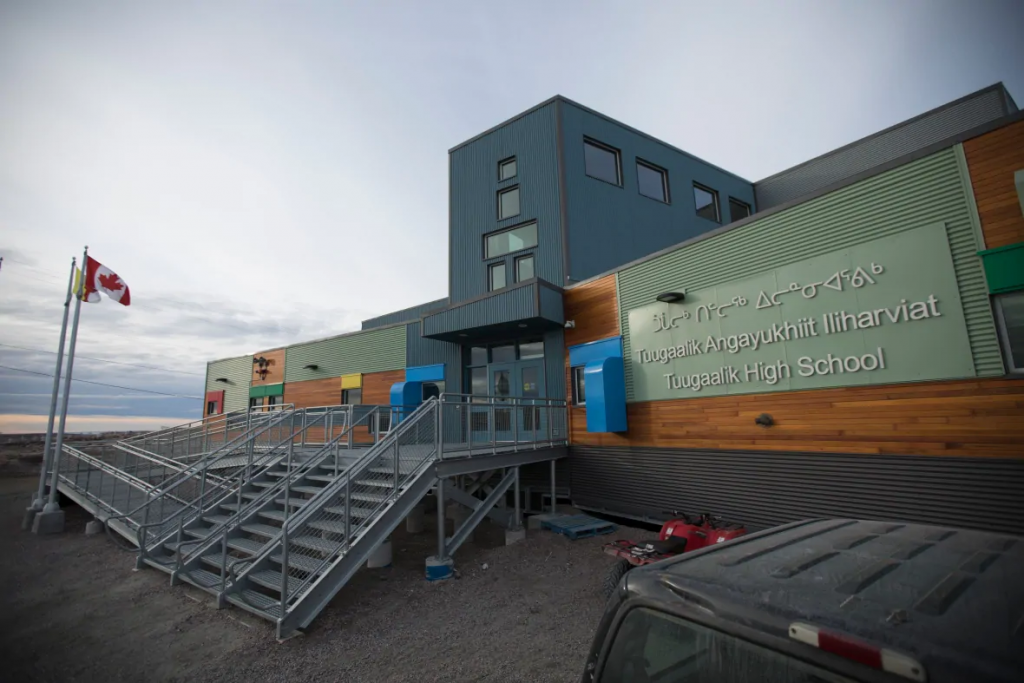
In stage three, students will start going back to school at a limited capacity. Elementary school students will go three days a week at 60 per cent capacity. Middle and high school students will return for two days a week at 40 per cent capacity. Bus schedules will be staggered.
Physical distancing of two metres will be enforced and there will be no eating in communal areas or sharing food. Food programs will be stopped, adapted or reduced.
The document says all communities will eventually be able to return to stage one, even if they have had a case of COVID-19. The chief public health officer will make the transitions of stages once COVID-19 has been contained and all positive cases recovered.
‘Information vacuum’: education authority
The Iqaluit District Education Authority says it’s frustrated with the Nunavut government over the lack of information they’ve been getting on the school reopening plans.
“Our concern is we, and the school staff, are all left in an information vacuum, this is just not acceptable,” said the Iqaluit District Education Authority in a letter dated July 2 to Education Minister David Joanasie.
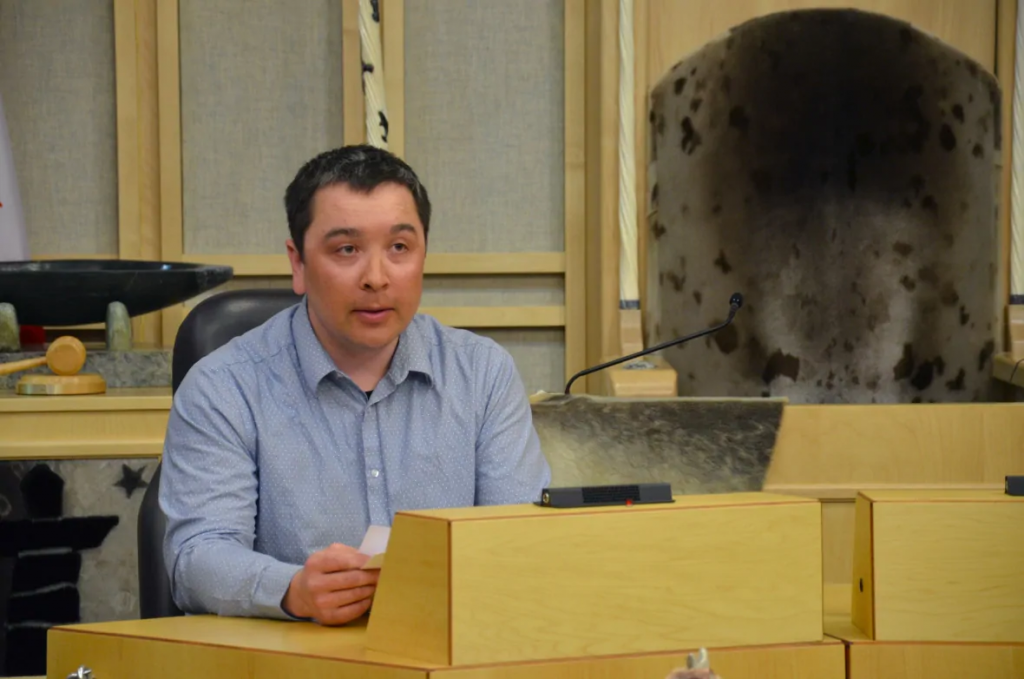
The letter urges the Department of Education to involve the district education authorities in the planning process for schools reopening. The letter poses questions like, who will supply and pay for extra cleaning supplies, and are there alternative solutions for students if they need to go back to home schooling.
Educators have spoken up about how COVID-19 has created education gaps between students. In the letter it asks if the government has a plan to provide students without access to computers and internet with these tools.
“Based on this lack of collaboration, we are not prepared for the return of students to classes in September 2020. Not by a long shot,” states the letter.
Final plan coming Monday
Education Minister Joanasie said in a emailed statement to CBC that he is disappointed the documents have been published before education partners have had a chance to weigh in on them.
“I am concerned that the premature publication of these draft documents may cause confusion with the public,” said Joanasie.
He says the draft documents were written to consult with Nunavut district education authorities and the Commission scolaire francophone du Nunavut for a teleconference this Friday.
In the call, Nunavut district education authorities will have a chance to ask the Department of Education and the chief public health officer about reopening plans.
The department said it will release a final version of the schools health and safety plan for reopening on Monday.
Read a snapshot of the Nunavut government’s draft plan to reopen schools,
or read the draft document here.
CBC is not responsible for 3rd party content
Related stories from around the North:
Canada: Continuing education a priority for new Yukon University president in Canada’s North, CBC News
Finland: Finnish gov agrees to formation of Sámi Truth and Reconciliation Commission, Yle News
Norway: BBC lists Sami journalist Sara Wesslin among world’s 100 most influential women, The Independent Barents Observer
Russia: Russia removes critical voices ahead of Arctic Council chairmanship, claims Indigenous peoples expert, The Independent Barents Observer
Sweden: Calls for more Indigenous protection in Sweden on Sami national day, Radio Sweden
United States: Indigenous leaders at UN meeting push for decade dedicated to language revitalization, CBC News

